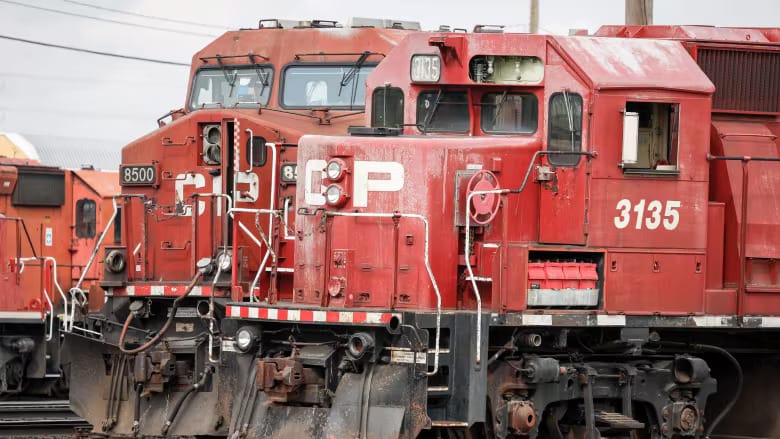Rail reopening begins with workers at CN taking down pickets, but CPKC stoppage ongoing
Jonathan Abecassis, director of public affairs and media relations at CN Rail, said that without an agreement or binding arbitration, the company "had no choice" but to lock out employees. CPKC also called for binding arbitration, saying the union has made "unrealistic demands."

The Teamsters Canada Rail Conference announced that it has removed picket lines at Canadian National Railway (CN), and workers will start returning to work on Friday. However, the work stoppage at Canadian Pacific Kansas City (CPKC) remains in effect, awaiting a decision from the Canada Industrial Relations Board.
After months of tense contract negotiations, both of Canada’s largest railways locked out workers when they failed to reach agreements with the union by a Thursday deadline. This unprecedented work stoppage led federal Labour Minister Steven MacKinnon to refer the dispute to the Canada Industrial Relations Board for binding arbitration.
The union and CPKC officials met with the board on Thursday and are scheduled to meet again on Friday. While CPKC expressed its willingness to discuss resuming services during the meeting with the CIRB, the union opted to challenge the constitutionality of MacKinnon’s directive instead.
CN and CPKC locked out 9,300 engineers, conductors, and yard workers just after midnight on Thursday, following increasingly bitter labour negotiations. Jonathan Abecassis, CN Rail's director of public affairs and media relations, stated that the company had "no choice" but to lock out employees without an agreement or binding arbitration. CPKC also pushed for binding arbitration, arguing that the union’s demands were "unrealistic."
Less than 17 hours after the lockout began, MacKinnon announced his decision to intervene using his authority as labour minister. Under Section 107 of the Canada Labour Code, the government can refer a labour dispute to the Canada Industrial Relations Board to find a resolution.
The work stoppage has disrupted cargo and commuter services, causing significant pressure from industry groups and provincial governments to resolve the conflict. The two rail companies together transport $1 billion worth of goods daily, according to the Railway Association of Canada, with many shipments halted in advance to prevent stranded cargo.
The impasse is also affecting tens of thousands of commuters in Toronto, Montreal, and Vancouver, whose rail services rely on CPKC-owned tracks. Without traffic controllers to manage the dispatch, passenger trains cannot operate on these lines.
Industries impacted by the stoppage include agriculture, mining, energy, retail, automaking, and construction. Additionally, U.S. railways have had to turn away Canada-bound shipments, as they depend on Canada’s two major railways, which have routes extending to the Gulf of Mexico and, in CPKC’s case, several Mexican ports.





